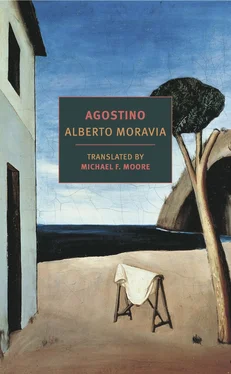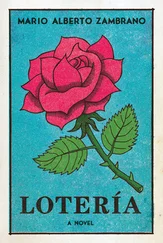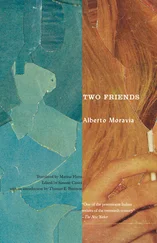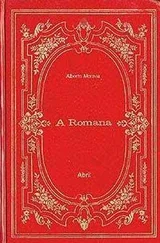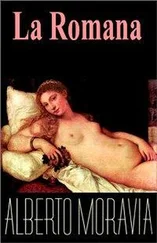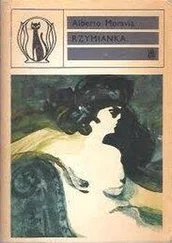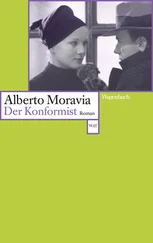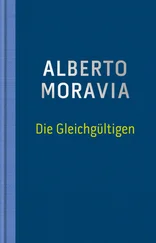* G.L. Bickersteth, Carducci: A Selection of His Poems, with Verse Translations, Notes, and Three Introductory Essays (London, New York, Bombay and Calcutta: Longmans, Green, and Co., 1913).
AFTER that day a dark and tormented period began for Agostino. On that day his eyes had been forced open, but what he learned was far more than he could bear. What oppressed and embittered him was not so much the novelty as the quality of the things he had come to know, their massive and undigested importance. He had thought, for example, that after those revelations, his relations with his mother would have been settled, and the unease, irritation, and repulsion that her caresses provoked in him, especially in recent days, would be almost magically resolved and appeased by a new and serene awareness. But this did not happen. His irritation, unease, and repulsion persisted. While before they were signs of a son’s affection, tainted and troubled by the dark awareness of his mother’s womanhood, now, after the morning spent under Saro’s tarp, they stemmed from an acrid, impure curiosity that his continued respect for family made intolerable. While before he had struggled in the dark to free that affection from an unjustified repulsion, now he felt almost obliged to separate his rational new knowledge from the promiscuous, visceral sense that he was born of a person he wanted to see only as a woman. He felt as if all his unhappiness would vanish on the day he could see in his mother the same beautiful creature perceived by Saro and the boys. And he searched doggedly for occasions that would confirm this conviction, only to find that he had replaced his former reverence with cruelty and his affection with sensuality.
At home his mother, as in the past, did not conceal herself from his gaze, nor did she notice any change in it. Agostino felt as if she were provoking and pursuing him with her maternal immodesty. Sometimes he would hear her calling him and find her at her vanity, in dishabille, her breasts half naked. Or he would wake up and see her leaning over him for a morning kiss, allowing her dressing gown to fall open and her body’s outlines to appear through the transparency of her light, wrinkled negligee. She walked back and forth in front of him as if he weren’t there. She would pull her stockings on and off, slip into her clothes, dab on some perfume, apply her makeup. All of these gestures, which had once seemed so natural to Agostino, now seemed to take on meaning and become an almost visible part of a larger, more dangerous reality, dividing his spirit between curiosity and pain. He repeated to himself “She’s only a woman” with the objective indifference of a connoisseur. But one moment later, unable to bear his mother’s un-awareness or his own attentions, he wanted to shout, “Cover yourself, stop showing yourself to me, I’m not who I used to be.” Anyway, his hopes to see his mother only as a woman failed almost immediately. He realized quickly that, although she was now a woman in his eyes, she remained more a mother than ever. And he realized that the sense of cruel shame, which he had briefly attributed to the novelty of his feelings, would never leave him. He suddenly grasped that she would always be the person he had loved with pure and unencumbered affection; that she would always mix with her most womanly gestures the affectionate acts that for so long had been the only ones he knew; that he would never be able to separate his new perception of her from the wounded memory of her former dignity.
He did not doubt that his mother and the young boatman were engaged in the type of relations that the boys had described under Saro’s tarp. And he was strangely amazed by the change that had taken place in himself. His heart had been filled with jealousy of his mother and dislike of the young man, two vague and almost dormant feelings. But now, in the effort to remain calm and objective, he would have liked to feel understanding toward the young man and indifference toward his mother — except his understanding was little more than complicity, and his indifference indiscretion. Rarely did he accompany them out to sea anymore, always finding a way to escape the invitations. But every time he did go with them, Agostino realized he was studying the young man’s behavior and words, as if waiting for him to overstep the boundaries of his usual urbane gallantry; likewise, he studied the mother’s actions, as if hoping to see his suspicions confirmed. These sentiments were unbearable for him because they were the exact opposite of what he desired. And he almost missed the compassion he used to feel for his mother’s clumsiness, so much more human and affectionate than his cruel attention to her now.
From those days spent struggling with himself, he was left with a murky sense of impurity. He felt as if he had bartered away his former innocence, not for the virile, serene condition he had aspired to but rather for a confused hybrid state in which, without any form of recompense, the old repulsions were compounded by the new. What was the use of seeing things clearly if the only thing clarity brought was a new and deeper darkness? Sometimes he wondered how older boys, knowing what he knew, could still love their mothers. He concluded that this awareness must have gradually killed their filial affection, while in him one had not succeeded in expelling the other, and their coexistence had created a turbulent mix.
As can happen, the place of these discoveries and conflicts — his home — soon became unbearable. At least when he was on the beach, he was distracted and numbed by the sun, the crowd of bathers, and the presence of so many other women. But at home, between four walls, alone with his mother, he felt prey to every temptation, trapped by every contradiction. On the beach the mother blended into all the other naked flesh, while at home she appeared singular and excessive. Like a private theater in which the actors seem larger than life, her every action and word stood out. Agostino had a sharp and adventurous sense of family privacy. As a child he had seen the halls, closets, and rooms as strange mutable places to make the most curious discoveries and live out the most fantastic adventures. But now, after the encounter with the boys under the red tarp, those events and discoveries belonged to a realm so different that he couldn’t tell whether they attracted or frightened him. He used to imagine ambushes, shadows, presences, voices in the furniture and in the walls. But now, rather than the fictions of his boyish exuberance, his imagination focused on the new reality that seemed to permeate the walls, the furnishings, and even the air of the house. The innocent fervor that his mother’s kisses and trusting sleep used to calm at night was replaced by the burning, shameful indiscretion that was magnified in the dead of night and seemed to feed his impure fire. Everywhere he went in the house he detected the signs, the traces, of a woman, the only one he happened to be near, and that woman was his mother. When he was close to her, he felt as if he was monitoring her, when he approached her door it was as if he were spying on her. And when he touched her clothes he felt as if he was touching the woman who had worn them against her skin. At night he conjured up the most troubling nightmares. Sometimes he felt like the child he used to be, frightened of every noise and shadow, the child who would suddenly get up and run to the safety of his mother’s bed. But the instant he set his feet on the floor, even amid the confusion of the dream, he realized that his fear was nothing more than a maliciously disguised curiosity and that, once he was in his mother’s arms, his nocturnal visit would quickly reveal its true, hidden purpose. Or he would suddenly wake up and wonder whether the young boatman chanced to be on the other side of the wall, in the next room, with his mother. Certain sounds seemed to confirm this suspicion. Others allayed it. For a while he would toss and turn in his bed and then, without knowing how he arrived there, find himself in his nightshirt, in the hall outside his mother’s door, in the act of listening and spying. Once he even yielded to temptation and entered without knocking. He stood in the middle of the room without moving. Through the open window the moonlight shone, indirect and white, and his eyes focused on the bed where the dark hair and long bulging shapes wrapped in the sheets revealed the woman’s presence. “Is that you, Agostino?” the mother asked, roused from her sleep. Without saying a word, he quickly returned to his room.
Читать дальше
